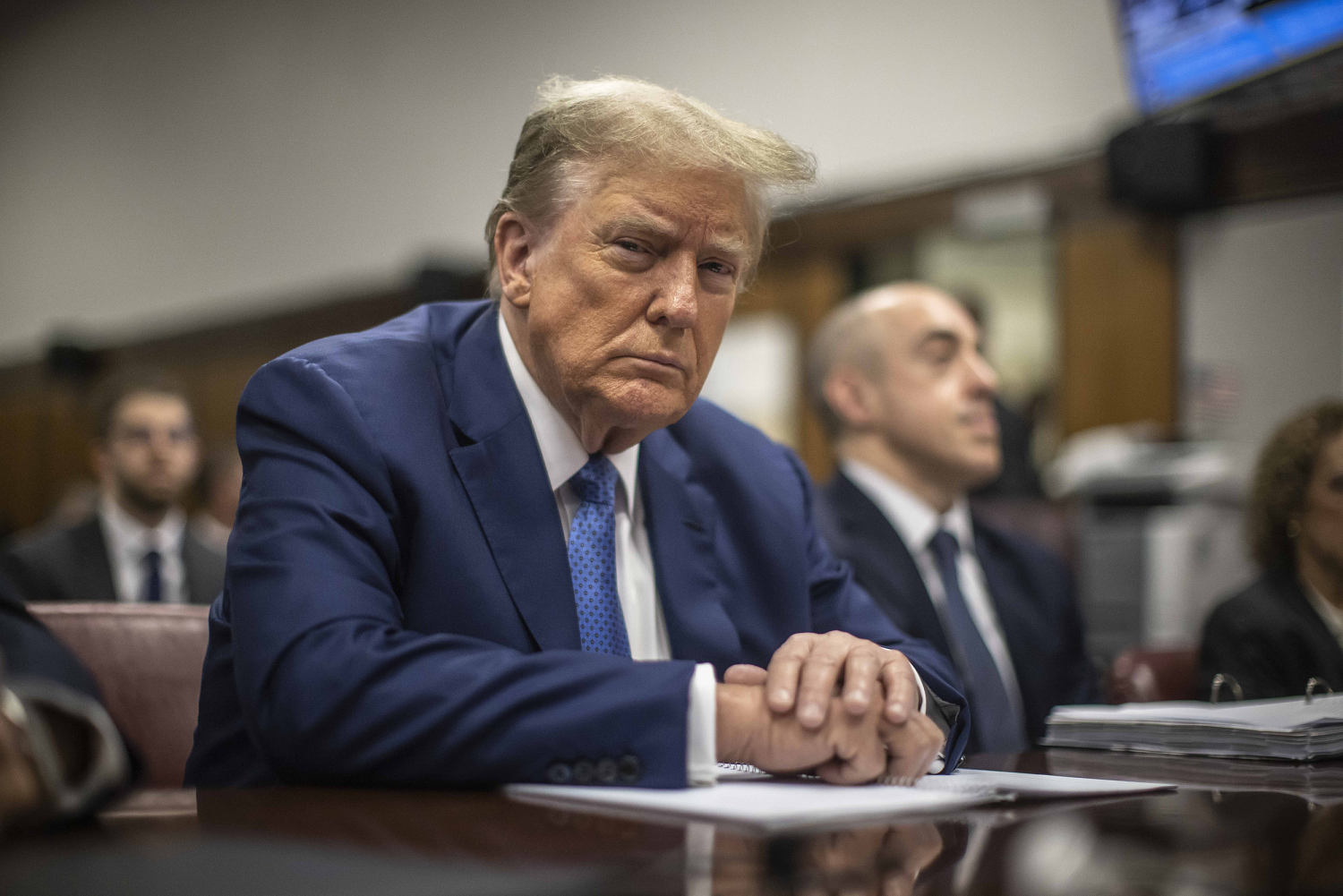
Former President Donald Trump has asked a state court judge to toss out his criminal conviction in New York, pointing to the Supreme Court’s recent immunity decision that outlines when a former president must be shielded from prosecution.
While the effort to toss out the jury’s verdict likely faces an uphill battle with Judge Juan Merchan, the last-ditch bid already succeeded in getting Trump’s sentencing date postponed.
Sentencing had been scheduled for Thursday but was delayed by Merchan last week to allow him more time to consider legal briefing on the immunity question from both sides. Prosecutors are expected to respond to the latest filing by July 24, and that sentencing is currently set for Sept. 18.
The motion from Trump’s trial team, led by Todd Blanche, primarily focuses on several examples of what it describes as “impermissible official-acts evidence,” which under the Supreme Court’s new ruling cannot be introduced at trial when it touches on “core” presidential duties. According to Trump’s attorneys, his private conversations with former White House Communications Director Hope Hicks, conversations around his pardon power, as well as his posts on Twitter, were all wrongly admitted during the Manhattan case — and would now require a new trial.
His attorneys had previously argued Trump was immune from prosecution in the New York case, but Merchan was not persuaded. They now argue that Merchan is “duty-bound” to follow the high court’s decision, which came down more than a month after a Manhattan jury found Trump guilty.
The jury rendered guilty verdicts on 34 counts of falsifying business records after weeks of testimony that detailed a scheme to illegally influence the 2016 election through a hush money payment to Stormy Daniels, who threatened to derail his campaign with a story of sex with Trump from a decade earlier. Trump has continued to deny any encounter with Daniels but did not testify at trial.
Even if none of the evidence at trial involved “core” duties of the presidency, Trump’s attorneys zeroed in on part of the Supreme Court’s decision that requires “presumptive” immunity from criminal prosecution for other acts unless the government successfully rebuts that presumption.
The 52-page motion not only makes legal arguments concerning immunity but echoes some of the rhetoric used by Trump against District Attorney Alvin Bragg, a Democrat — arguing the case was politically motivated from the start and Trump has been treated unfairly.
Blanche argued that rather than wait for the Supreme Court’s guidance on immunity, prosecutors scoffed with hubris and insisted on rushing to trial, even though “no court has ever been faced with the question of a President’s immunity from prosecution.”
His team went on to argue that the case turned on a single witness, Trump’s former fixer Michael Cohen, and so prosecutors wrongly used the testimony of Hicks and others to bolster their case in a way the Supreme Court has now found is off-limits.
While Trump is likely to face only one trial in his criminal cases before the November election, his attorneys have also sought to leverage the Supreme Court’s ruling in his Florida case over allegations of mishandling classified documents. Last week, the same defense team asked a federal judge to stay proceedings in that case to consider the impact of the Supreme Court’s ruling. She agreed to receive further legal briefing on the issue.







